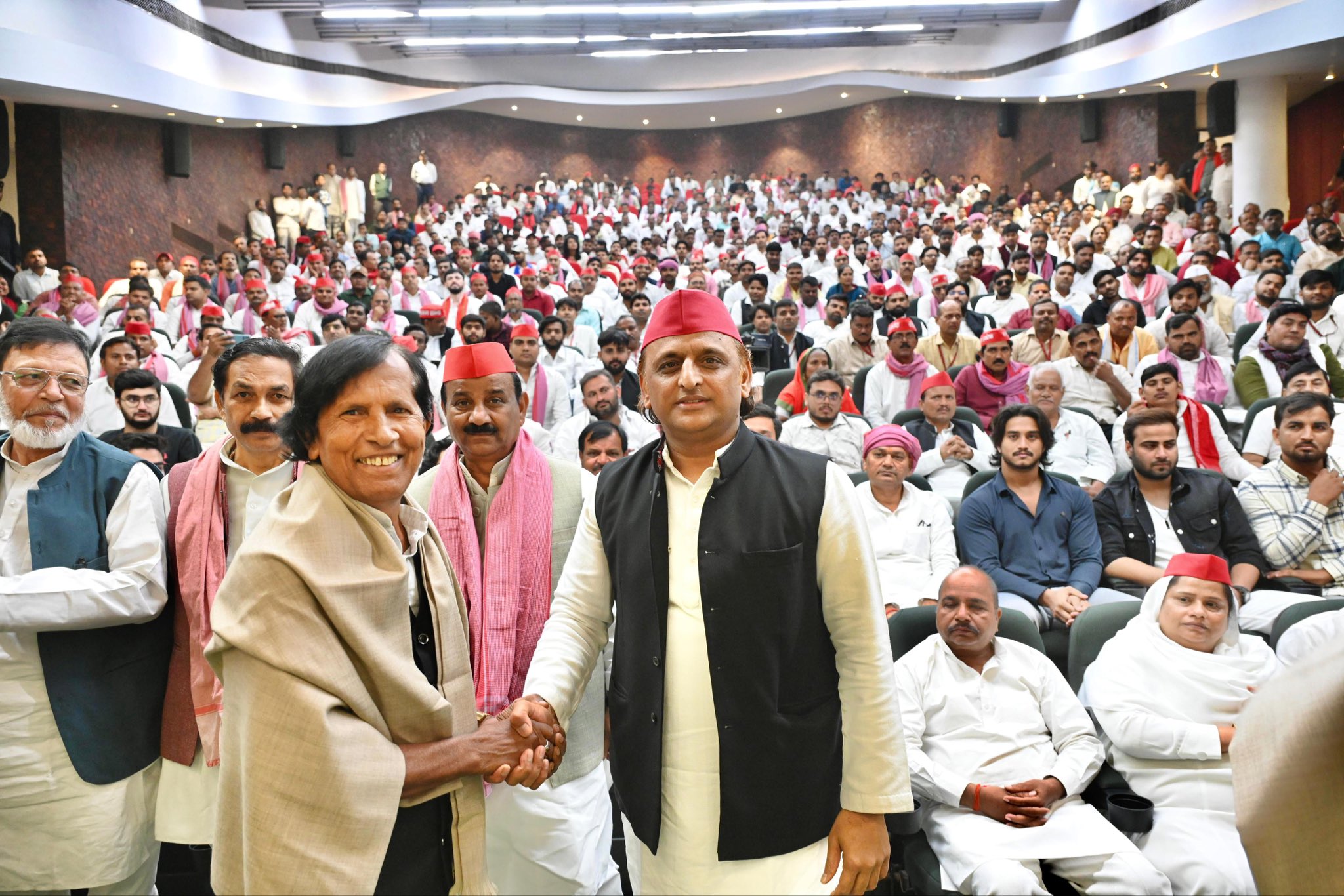Politics
Political Clash Erupts Over Diwali Remarks in Uttar Pradesh

A heated political exchange occurred in India following remarks made by Akhilesh Yadav, leader of the Samajwadi Party (SP), regarding Diwali celebrations in Uttar Pradesh. During a recent Diwali gathering, Yadav criticized the state government, led by Yogi Adityanath, suggesting that the expenditure on festive decorations was unnecessary. He posed a provocative question about the global celebration of Christmas, stating, “In the entire world, all the cities get illuminated during Christmas. And that goes on for months. Why do we have to spend money on lamps and candles and put so much thought into it?”
Yadav’s remarks sparked a strong backlash from Vinod Bansal, spokesperson for the Vishwa Hindu Parishad (VHP). Bansal condemned Yadav’s comments as indicative of an “anti-Sanatana mindset.” He challenged Yadav further, stating, “Go celebrate Christmas in Vatican City, you may get 2–4 voters there,” while accusing him of being ignorant of Hindu traditions. Bansal highlighted the sentiments of the Kumhar community, artisans who create the diyas used during Diwali, emphasizing their longstanding cultural significance.
Underlying Cultural Tensions
The exchange underscores deeper cultural and political tensions in India. Yadav’s questioning of Diwali expenditures not only critiques government spending but also touches on broader themes of identity and communal values. His statements drew attention to the traditional importance of Diwali, contrasting it with Christmas, which some may interpret as challenging Hindu cultural identity.
Bansal’s response, with its reference to the Vatican, reflects a defensive stance regarding Hindu traditions in the face of perceived challenges. His comments evoke a narrative that positions Hindu festivals as sacred and integral to national identity, a stance that resonates with segments of the population that feel their cultural heritage is under threat.
The incident illustrates how festival celebrations in India are often politicized, acting as platforms for expressing identity and governance challenges. Yadav’s critique of how the state manages its festival spending raises questions about administrative efficacy, while Bansal’s reaction highlights the sensitivities surrounding cultural celebrations in a diverse society.
Political Implications
This controversy has broader implications for political discourse in India, especially as it relates to identity politics. Yadav’s remarks could influence public perception of the Samajwadi Party’s stance on cultural issues, while Bansal’s comments may galvanize support for the VHP’s advocacy of Hindu values.
As the dialogue continues, it is clear that discussions around festivals like Diwali and Christmas are not just about celebrations but also reflect the complex interplay of culture, politics, and community in contemporary India. The incident serves as a reminder of how deeply intertwined cultural identity and political rhetoric can be, particularly in a nation as diverse as India.
-

 World5 months ago
World5 months agoSBI Announces QIP Floor Price at ₹811.05 Per Share
-

 Lifestyle5 months ago
Lifestyle5 months agoCept Unveils ₹3.1 Crore Urban Mobility Plan for Sustainable Growth
-

 Science4 months ago
Science4 months agoNew Blood Group Discovered in South Indian Woman at Rotary Centre
-

 World5 months ago
World5 months agoTorrential Rains Cause Flash Flooding in New York and New Jersey
-

 Top Stories5 months ago
Top Stories5 months agoKonkani Cultural Organisation to Host Pearl Jubilee in Abu Dhabi
-

 Sports4 months ago
Sports4 months agoBroad Advocates for Bowling Change Ahead of Final Test Against India
-

 Science5 months ago
Science5 months agoNothing Headphone 1 Review: A Bold Contender in Audio Design
-

 Top Stories5 months ago
Top Stories5 months agoAir India Crash Investigation Highlights Boeing Fuel Switch Concerns
-

 Business5 months ago
Business5 months agoIndian Stock Market Rebounds: Sensex and Nifty Rise After Four-Day Decline
-

 Sports4 months ago
Sports4 months agoCristian Totti Retires at 19: Pressure of Fame Takes Toll
-

 Politics5 months ago
Politics5 months agoAbandoned Doberman Finds New Home After Journey to Prague
-

 Top Stories5 months ago
Top Stories5 months agoPatna Bank Manager Abhishek Varun Found Dead in Well









